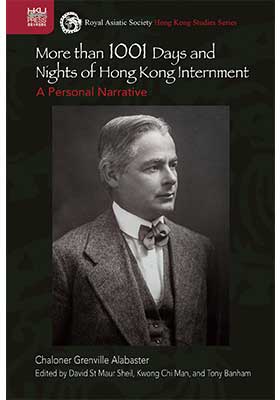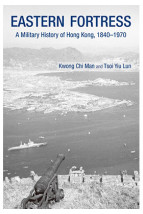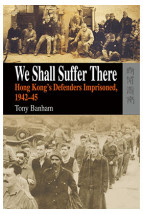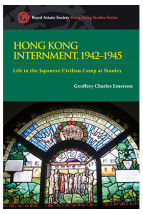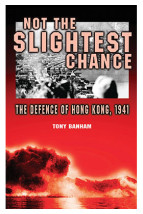More than 1001 Days and Nights of Hong Kong Internment
A Personal Narrative
(1001個日與夜的香港拘留:晏禮伯的自述)
ISBN : 978-988-8754-12-0
Royal Asiatic Society Hong Kong Studies Series (皇家亞洲學會香港研究叢書)
March 2022
336 pages, 6″ x 9″, 18 b&w illus. and 3 maps
- HK$450.00
Ebooks
Also Available on
More Than 1001 Days and Nights of Hong Kong Internment is the wartime journal of Sir Chaloner Grenville Alabaster, former attorney-general of Hong Kong and one of the three highest-ranking British officials during the Japanese occupation. He was imprisoned by the Japanese at the Stanley Internment Camp from 1941 to 1945. During his internment, he managed to keep a diary of his life in the camp in small notebooks and hid them until his release in 1945. He then wrote his wartime journal on the basis of these notes. The journal records his day-to-day experiences of the fall of Hong Kong, his time at Stanley, and his eventual release. Some of the most fascinating extracts cover the three months immediately after the fall of Hong Kong and when Alabaster and his colleagues were imprisoned in Prince’s Building in Central and before they were sent to the camp, a period little covered in previous publications. Hence, the book is an important primary source for understanding the daily operation of the Stanley Internment Camp and the camp’s environment. Readers will also learn more about the daily life of those imprisoned in the camp, and C. G. Alabaster’s interaction with other prisoners there.
‘A prominent figure in pre-war Hong Kong, Alabaster was one of the leaders of the British community in Stanley Internment Camp. His recently discovered journal provides a detailed and candid account of the routines, anxieties, and hardships of camp life. It also offers new insights into the complex politics and divisions among internees. With its substantial editorial introduction, this book is an important addition to the growing literature on internment during Japan’s wartime occupation of Hong Kong.’ —Christopher Munn, University of Hong Kong
‘Of the many memoirs of the Stanley civilian internment camp, this is perhaps the most fascinating and engrossing. Written soon after the war and based on a diary, it is not only a day-by-day description of the travails of life in captivity but also, more interestingly, an account of the inner tensions and divisions that were rampant among the British internees from beginning to end.’ —Edward J. M. Rhoads, University of Texas at Austin

